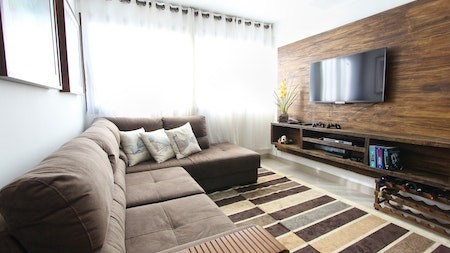The practice of using auctions as a means of buying and selling property has become more popular in South Africa, and this applies to private treaty sales as well as sales in execution.
An auction is a public sale in which the price is determined by bidding, and the item for sale is sold to the highest bidder. Potential buyers participate by bidding on items the auctioneer has listed in a catalogue.
The person who offers the highest bid at the fall of the hammer is obliged to purchase the item at that price immediately after the auction.
Property
The most important thing to remember when bidding for fixed property is that a winning bid is a binding agreement on the fall of the hammer. So if a fixed property is knocked down to you for R1 million, you can't get out of the deal by saying you didn't really want it or your spouse isn't happy with the house.
The usual five-day cooling-off period that applies to properties worth R250 000 or less sold by private treaty does not apply to fixed property sold by auction. Also, fixed property that is sold by public auction is sold for cash. It is not subject to bond approval, and there are no suspensive factors, so it is advisable to have your bond approved before you bid.
In a private transaction, the conveyancing attorneys are usually appointed by the sellers, but with an auction, the auctioneer's attorneys draw up the sales contract before the auction date.
Remember that you will be responsible for covering expenses like electrical and other certificates of compliance. If the seller has to pay for these, it could become a suspensive clause.
Some property auctions are subject to confirmation periods where the seller has the right to confirm the sale, but buyers are bound during the confirmation period. These confirmation periods may vary from 24 hours to two weeks.
When your bid for the property is successful, you will be required to put down a 10% deposit and pay the buyer's commission - usually around 7,9%. The balance is payable on transfer of the property into your name.
Research
Properties on auction are sold voetstoots, and there is no guarantee on anything you buy at an auction. This means you need to do careful research before signing up as a bidder.
You need to inspect the property, ensure that you can actually afford to buy it, that your finances are in order and that you have the necessary deposit. Don't go to an auction to bid, and then try to arrange finance afterwards.
Ask the auctioneer for the conditions of sale, which must be open to examination. Don't wait for them to be read out by the auctioneer at the time of the auction. If necessary, ask for them to be emailed to you before the time so that you can examine the conditions at your leisure.
Conditions tend to be standard, but it pays to know beforehand what the costs will be. These include rates, VAT, and whether you will have to pay any outstanding or arrears amounts.
When you bid, you are always bidding a net amount, which doesn't include VAT or transfer duty. Remember that normal transfer duty is payable unless the property is subject to VAT. Transfer duty works out at roughly 8%, whereas VAT is 15% and could amount to a lot of money on the purchase price of a property. Discuss the VAT issue with your financial adviser, as there may be other advantages to paying VAT over transfer duty.
Auctioneers
Establish that an auctioneer is reputable by contacting the SA Institute of Auctioneers (Saia).
Be wary of auctioneers who place advertisements that list only cellphone numbers as contact numbers. A well-run auction requires a large backup team to set up catalogues, assist buyers at the viewing and deal with a host of administrative tasks.
Bidding
New bidders are often intimidated by more seasoned bidders, who are very often speculators. Inexperienced bidders are usually buying properties for themselves. Therefore, they may be put off by the initial high bids offered by seasoned speculators, who are bidding on properties they intend to resell.
It's a good idea to attend one or two auctions without bidding to get a feel for how the system works before getting involved.
Don't get caught up in the emotions of the auction. Instead, decide what price you are prepared to pay before bidding, and don't go above it.
Expectations
People generally expect to get bargains at auctions, but sometimes the winning bid is much higher than expected.
With auctions, there is no guarantee that any property on auction will be sold or that it will fetch a specific price. This adds to the excitement and is the reason so many people attend auctions without having any intention of bidding.
Writer: Sarah-Jane Meyer




